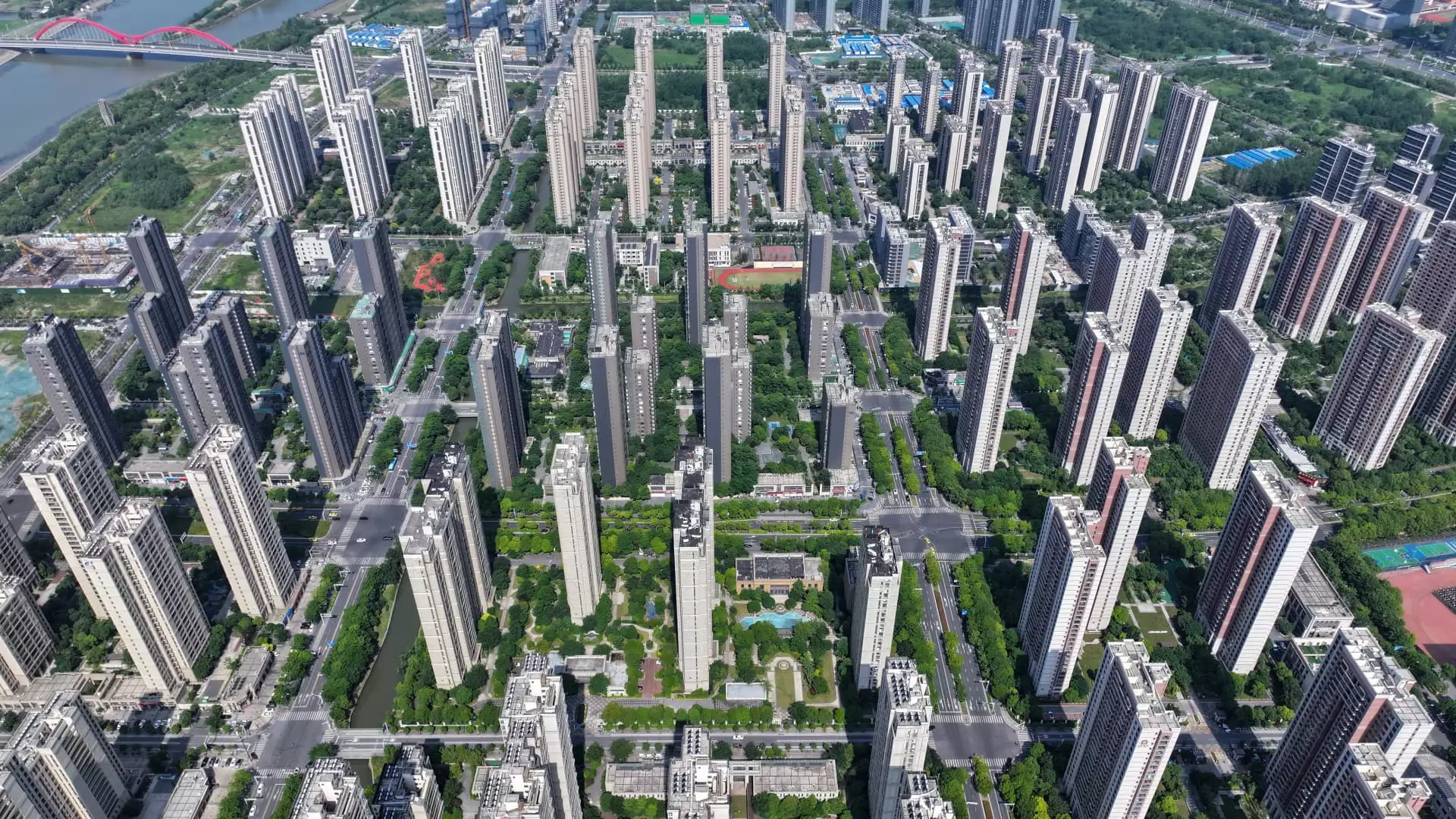In a remarkable shift, shares of several Hong Kong-listed Chinese property developers have surged to heights not seen in over a year, driven by a combination of government stimulus measures and renewed investor confidence. The broader Hang Seng Index, which serves as an indicator of the market’s overall health, registered a notable increase of around 6%. Leading this charge were the real estate stocks, with Longfor Group Holdings witnessing a staggering 25% rise. Other significant players in the sector demonstrated equally impressive gains, such as Shimao Group, which saw its stock soar by over 87%. Kaisa Group also showed formidable strength with a spike of 40.48%, both companies marking their highest values in twelve months.
As the situation unfolds, it’s important to recognize the proactive measures taken by various cities in mainland China to stimulate the residential property market. Major developments include the lifting of previous home purchase restrictions in Guangzhou and a reduction in the necessary duration for tax payments associated with property purchases in Shanghai. Shenzhen’s easing of restrictions, permitting additional apartment purchases in select districts, rounds out a series of adjustments aimed at bolstering buyer confidence. Such regional initiatives underscore an earnest effort to inject vitality back into the real estate sector, historically a key pillar of China’s economic landscape.
Despite the apparent optimism surrounding these recent developments, experts, including those at Morgan Stanley, warn that it will require far more than favorable policies to restore the sector to its former glory. In a recent note, they pointed out that the ongoing struggles are rooted deeply in a protracted decline that began in 2020, spurred by Beijing’s stringent regulatory actions against excessive debt within the property realm. As a result, the real estate sector now contributes less than 25% to China’s GDP, revealing just how much it has faltered over recent years. Even with the government’s interventions, analysts caution that any potential recovery is likely to be met with significant obstacles.
Long-term Implications for the Economy
The ramifications of the property sector’s struggles extend beyond just market indices; they create a ripple effect that influences overall economic growth. With the likelihood of sustained demand shortfalls, there is concern among economists that growth projections may continually fall short of expectations. The interplay between governmental efforts to stabilize the housing market and the realities of a wounded sector will be crucial in determining the long-term health of China’s economy.
Overall, while recent developments offer a glimmer of hope, the path to revitalizing the property market remains fraught with challenges. Stakeholders must remain vigilant as they navigate this intricate landscape, balancing on the tightrope of policy efficacy and market realities. The road ahead demands not only optimism but also strategic, well-considered actions to restore confidence in a sector that is essential to China’s economic fabric.

